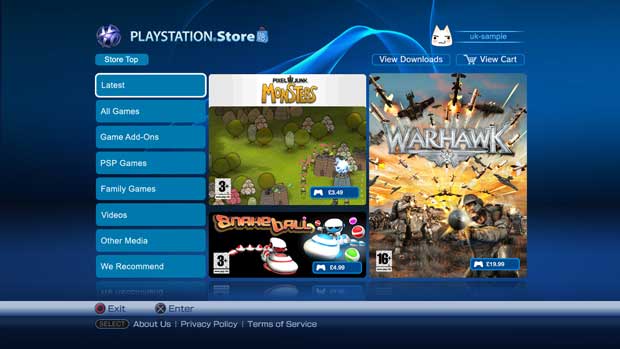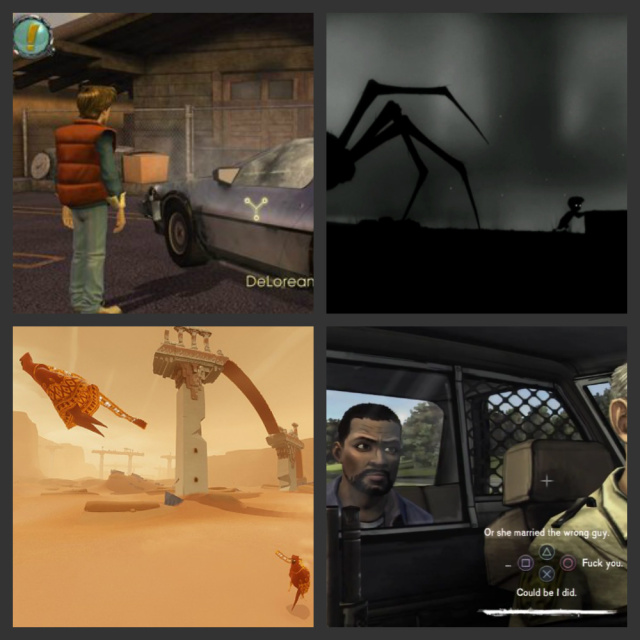This post has not been edited by the GamesBeat staff. Opinions by GamesBeat community writers do not necessarily reflect those of the staff.

There is a rapidly growing belief that digital games will become the standard method of acquiring a game and supersede physical game purchases. (i.e. phasing out physical games altogether) This is in large part the desire of the publisher, in order to profit more than they would from a physical copy of a game, (i,e, used games) Thus they would like this to be the standard as soon as possible. It is also the desire of mobile game developers who believe that mobile games will eradicate console games. However, both game publishers and mobile game developers desires will never come to be.
The digital game medium (i.e. downloadable games) is a medium for indie developers. It is the genre they made popular, with creative ideas and cheap prices:

Back To the Future: The Video Game, Limbo, Journey, The Walking Dead, etc…
There is no room for big name publishers (who gamers expect physical game copies from) to enter into the downloadable game market. The biggest reason is price, if big name publishers want to sell their titles as digital downloads then they would have to change the pricing of the game. As any smart gamer knows that digital games cost less to distribute. (i.e. minus packaging, pressing and shipping cost) so the price would be significantly less than that of a physical copy. (were talking last gen prices $39.99-$49.99)
However as a gaming magazine (Game Informer issue 230 PG 22, "The Future is Downloadable") recently stated, "the savings cost is not always passed on to the consumer". which is the case in Saints Row: The Third, which is $59.99 as a download. The cost of distribution for the game is significantly reduced, no box, manual, game disc or shipping cost, yet those savings are not passed on to the consumer. The same applies to other full games offered in digital format as well. (i.e. Mass Effect 3,etc…)
One may argue convenience in downloading a full game, but what about price, (as it is the most important thing when buying a video game) especially since the publisher is saving money. Gamers get less for the amount they would spend at the store, so it's something gamers should questioned. Publishers (especially big named ones) could care less if gamers save any money, from being aware of the money they as publishers save.
The thing digital games are synonymous with is the length of play, which is a few hours (1 to 2 at best) or less as opposed to 40 hours or more. Therefore, games produced by big named publishers don't meet this criteria. The length of gameplay for digital games is one of the factors that persuade gamers to download the game. As digital games are more like mini-games, rather than an actual full game.
That being said, the length of gameplay contributes to the games file size, something in which many gamers take note of (not everyone can afford a HDD upgrade or they have limited HDD space). For the most part (excluding add-ons or stand alones to full games) the file size of a digital game is no bigger than 5 GB (if that) and as such downloading a full digital game is a breeze (very quick) However, that is not the case with full (big name publisher games) game downloads, they are much larger in file size and take an extremely long time to download. (even with high speed internet)
A perfect example of this, is DCUO (although it's much larger than a typical video game, it does prove that it was better in disc format) 128 GB file (result of adding on expansion packs) which took over 5 hours to download (highest speed internet possible), and did not allow for downloading in background. There are numerous gamers who are unwilling to download such a game. Thus, another reason why big name publishers games can't/won't survive an all digital format. There's already enough waiting for installs and updates as it is, gamers only have so much patients. (if any)
The final reason a digital format won't work for big name publishers is because gamers like to touch and see their gaming collection. (it's impossible to do that with a digital copy of a game) This is probably the most sacred thing to a gamer, his/her gaming collection. The ability to look at and hold the gaming box, or show it to their friends. It's a piece of art really, the box art, the manual to the game, and gamers are the curators of it. That is, if they maintain their games, manual and the box itself. (especially in regards to the more rarer games)
Besides, the packaging, pressing and shipping processes of video games, provide jobs, which if cut those jobs will no longer exist. The way it's always been is the way it should always remain, physical games (last gen) are that of big name developers and publishers. Digital games (this gen) are that of indie developers (and or small studios) and should remain as such.
